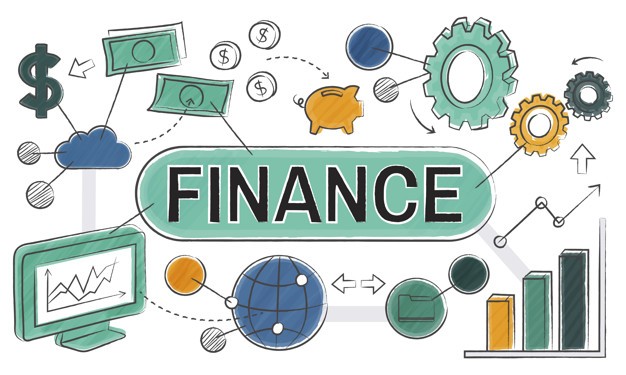How to Find a Mortgage Lender: A Step-by-Step Guide
Introduction
How to Find a Mortgage Lender: A Step-by-Step Guide. Buying a home is a big financial decision, and one of the most crucial steps is finding the right mortgage lender. A mortgage lender will provide the loan you need to purchase your home, and choosing the right one can save you thousands of dollars over the life of your loan.
In this comprehensive guide, we’ll cover everything you need to know to find a mortgage lender that suits your needs. From understanding the types of lenders to tips on comparing rates, you’ll gain valuable insights to make an informed decision.

1. What is a Mortgage Lender?
A mortgage lender is a financial institution that provides loans to homebuyers. They evaluate your financial situation, offer loan options, and determine how much you qualify for. Mortgage lenders can be banks, credit unions, mortgage brokers, or online lenders.
Types of Mortgage Lenders:
- Banks: Traditional lenders that offer a range of financial services.
- Credit Unions: Member-owned institutions with competitive rates.
- Mortgage Brokers: Intermediaries who connect borrowers with various lenders.
- Online Lenders: Digital platforms offering convenient loan applications.
Example: Sarah is buying her first home. She contacted her local bank and a mortgage broker. After comparing their offers, she chose the bank for its lower interest rate and familiarity.
2. Determine Your Needs
Before you start searching, assess your financial situation and identify what you need from a lender. Consider factors like your credit score, budget, and preferred loan term.
Key Questions to Ask Yourself:
- What is my credit score?
- How much can I afford to borrow?
- Do I prefer a fixed or adjustable-rate mortgage?
- Am I eligible for government-backed loans?
Example: John has a good credit score and a stable income. He opted for a 30-year fixed-rate mortgage for predictable monthly payments.

3.How to Find a Mortgage Lender: A Step-by-Step Guide
To find a mortgage lender that’s right for you, research and compare multiple lenders. Here are some tips:
- Online Reviews: Check customer feedback on platforms like Trustpilot or the Better Business Bureau.
- Interest Rates: Compare interest rates from different lenders.
- Loan Options: Ensure the lender offers loans that suit your financial goals.
- Customer Service: Evaluate their responsiveness and support.
Example: Linda used an online comparison tool to check rates from multiple lenders. She selected one offering competitive rates and excellent customer reviews.
4. Get Pre-Approved
A mortgage pre-approval gives you an estimate of how much you can borrow. It also shows sellers that you’re a serious buyer.
Steps to Get Pre-Approved:
- Gather your financial documents (tax returns, pay stubs, credit reports).
- Submit your application to a lender.
- Receive your pre-approval letter.
Example: Mark submitted his financial documents to three lenders. He chose the lender with the best pre-approval terms.
5. Compare Loan Offers
Once you have pre-approvals from multiple lenders, compare their offers using the Loan Estimate document. Pay attention to the following:
- Interest Rate: Lower rates save you money over time.
- Annual Percentage Rate (APR): Includes interest and fees.
- Loan Term: Choose between 15, 20, or 30 years.
- Closing Costs: Factor in appraisal fees, title insurance, and other costs.
Example: Samantha reviewed three Loan Estimates. She picked the lender with the lowest APR and transparent fee structure.
6. Questions to Ask Your Mortgage Lender
- What types of loans do you offer?
- What are your current interest rates?
- Are there any hidden fees?
- Can I lock in my rate?
- What is the estimated timeline for loan approval?
FAQ: Finding a Mortgage Lender
Q: How many lenders should I compare? A: It’s best to compare at least three lenders to ensure you get the most competitive rates and terms.
Q: Does getting pre-approved hurt my credit score? A: A pre-approval involves a hard credit check, which may slightly affect your score. However, multiple checks within a short period are usually treated as one inquiry.
Q: Can I negotiate my mortgage rate? A: Yes! Some lenders may lower your interest rate or waive fees if you negotiate, especially with a strong credit profile.
Q: What credit score do I need to get a mortgage? A: Most lenders require a credit score of 620 or higher for conventional loans. Government-backed loans may accept lower scores.

Conclusion
Finding the right mortgage lender doesn’t have to be complicated. By researching lenders, comparing loan offers, and understanding your financial situation, you’ll be well-equipped to make the best choice. Take your time, ask questions, and don’t hesitate to negotiate.
With these tips, you’ll confidently find a mortgage lender that suits your needs and moves you closer to homeownership.
Good luck on your home-buying journey!
- How to Find a Mortgage Lender: A Step-by-Step Guide
- How to Find a Mortgage Lender: A Step-by-Step Guide for First-Time Buyers
- How to Find a Mortgage Lender: A Detailed Step-by-Step Guide to Simplify the Process
- How to Find a Mortgage Lender: A Step-by-Step Guide for Securing Your Dream Home
- How to Find a Mortgage Lender: A Practical and Easy-to-Follow Step-by-Step Guide
- How to Find a Mortgage Lender: A Comprehensive Step-by-Step Guide to Compare Your Options
- How to Find a Mortgage Lender: A Step-by-Step Guide That Covers Everything You Need to Know
- How to Find a Mortgage Lender: A Simple Step-by-Step Guide for Stress-Free Home Financing
- How to Find a Mortgage Lender: A Reliable Step-by-Step Guide to Navigate the Mortgage Market
- How to Find a Mortgage Lender: A Clear and Effective Step-by-Step Guide for Homebuyers
- How to Find a Mortgage Lender: A Step-by-Step Guide to Help You Secure the Best Interest Rate
- How to Find a Mortgage Lender: A Beginner’s Friendly Step-by-Step Guide for First-Time Homeowners
- How to Find a Mortgage Lender: A Step-by-Step Guide Offering Expert Tips and Proven Strategies
- How to Find a Mortgage Lender: A Step-by-Step Guide Designed to Make Home Financing Simple
- How to Find a Mortgage Lender: A Step-by-Step Guide That Takes the Confusion Out of Mortgages
- How to Find a Mortgage Lender: A Practical Step-by-Step Guide to Compare and Choose the Right Lender
- How to Find a Mortgage Lender: A Step-by-Step Guide to Ensure You Get the Best Loan Terms Available
- How to Find a Mortgage Lender: A Straightforward and Comprehensive Step-by-Step Guide for New Buyers
- How to Find a Mortgage Lender: A Step-by-Step Guide Packed with Insights for Smarter Mortgage Choices
- How to Find a Mortgage Lender: A Step-by-Step Guide That Will Walk You Through Every Stage of the Process
. How do I find a mortgage lender?
Start by researching lenders online, checking reviews, and asking for recommendations. You can also work with a mortgage broker to compare multiple lenders.

2. What should I consider when choosing a mortgage lender?
Look at interest rates, loan terms, customer reviews, fees, and the lender’s reputation. Also, consider their customer service and responsiveness.
3. What are the different types of mortgage lenders?
There are traditional banks, credit unions, online lenders, and mortgage brokers. Each offers different loan products and services.
4. How can I compare mortgage lenders effectively?
Get loan estimates from multiple lenders and compare interest rates, fees, and loan terms. Use online comparison tools or consult a mortgage broker.
5. What is a mortgage pre-approval, and why is it important?
A pre-approval is a lender’s conditional offer for a loan amount. It shows sellers that you’re a serious buyer and helps you understand your budget.
6. How does my credit score affect my mortgage options?
A higher credit score typically qualifies you for lower interest rates. Lenders use your credit score to determine your creditworthiness.
7. What documents do I need to apply for a mortgage?
You’ll need identification, pay stubs, tax returns, W-2 forms, bank statements, and proof of assets or liabilities.
8. How can I get the best interest rate on my mortgage?
Maintain a good credit score, save for a larger down payment, compare lenders, and consider buying mortgage points to reduce your rate.
9. Should I choose a fixed or adjustable-rate mortgage?
A fixed-rate mortgage has stable payments, while an adjustable-rate mortgage (ARM) may start with a lower rate but can fluctuate. Choose based on your financial goals.
10. How long does the mortgage approval process take?
It typically takes 30 to 45 days, depending on the lender, loan type, and your responsiveness in providing documents.
11. Are online mortgage lenders reliable?
Yes, many reputable lenders operate online. Ensure they are licensed, check reviews, and verify their credentials.
12. What fees should I expect when working with a mortgage lender?
Common fees include origination fees, appraisal fees, underwriting fees, and closing costs. Request a loan estimate to understand all charges.
13. Can I negotiate my mortgage interest rate?
Yes, interest rates and fees are often negotiable. Comparing offers from multiple lenders strengthens your bargaining power.
14. Is it better to go with a local bank or an online lender?
Local banks may offer personalized service, while online lenders often provide competitive rates and faster approvals. Choose based on your preference.
15. What questions should I ask my mortgage lender?
Ask about interest rates, loan options, down payment requirements, closing costs, and how long the approval process takes.
16. How much down payment do I need for a mortgage?
Typically, you’ll need 3% to 20% down, depending on the loan type. Some government-backed loans require little to no down payment.
17. What is private mortgage insurance (PMI), and do I need it?
PMI is required for conventional loans with a down payment of less than 20%. It protects the lender in case of default.
18. How can I check a lender’s reputation?
Read online reviews, check with the Better Business Bureau (BBB), and confirm their licensing through the Nationwide Mortgage Licensing System (NMLS).
19. Can I get a mortgage with a low credit score?
Yes, some lenders offer FHA, VA, or USDA loans designed for lower credit scores. Expect higher interest rates or additional requirements.
20. What are the red flags to watch for when choosing a lender?
Be cautious of lenders with unclear terms, high upfront fees, aggressive sales tactics, or negative reviews.
21. How does a mortgage broker differ from a lender?
A mortgage broker connects you with multiple lenders, while a lender directly provides the loan. Brokers may help you find better rates.
22. Is getting pre-qualified the same as pre-approved?
No, pre-qualification is an informal estimate of how much you can borrow. Pre-approval is a formal, conditional offer from a lender.
23. How can I estimate my monthly mortgage payment?
Use online mortgage calculators to estimate your payment based on the loan amount, interest rate, and loan term.
24. What is a mortgage rate lock, and should I get one?
A rate lock guarantees your interest rate for a set period, protecting you from market rate increases before closing.
25. Are there special mortgage programs for first-time homebuyers?
Yes, many lenders offer FHA loans, VA loans, or local assistance programs with lower down payments and favorable terms.
26. Can I switch lenders after I apply for a mortgage?
Yes, but it may delay your closing and involve additional fees. Evaluate whether the benefits outweigh the costs.
27. What happens if my mortgage application is denied?
Ask for the reason, review your credit report, and work on improving your finances. You can also apply with a different lender.
28. How do I choose between a conventional loan and a government-backed loan?
Conventional loans are ideal for borrowers with good credit and stable income. Government-backed loans are more flexible and may require lower down payments.
29. Can I refinance my mortgage with a different lender?
Yes, refinancing with another lender can help you get a lower interest rate, change your loan term, or cash out home equity.
30. How do I avoid mortgage scams and predatory lenders?
Be wary of unsolicited offers, high upfront fees, and lenders pressuring you to sign quickly. Verify their credentials and get everything in writing.





Great insights on risk management-very relevant in today’s fast-paced digital world. Tools like Best AI Tools help streamline decision-making by offering curated, reliable AI solutions for smarter outcomes.